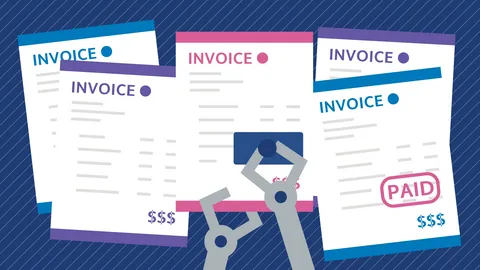Finance
Must-Have Insurance Types Every Family Needs for Protection

Introduction
Life is full of surprises—some bring joy, others present challenges. As a parent or partner, you want to protect your family from financial hardship if the unexpected occurs. The right insurance policies provide a safety net, ensuring that medical bills, home repairs, or loss of income don’t derail your loved ones’ future. In this guide, we’ll explore the must-have types of insurance every family needs. You’ll learn how each policy works, why it matters, and tips for choosing the best coverage. By the end, you’ll have a clear roadmap to safeguarding your family’s health, home, and finances.
Must-Have Insurance Types Every Family Needs for Protection
1. Health Insurance
Why It Matters
Medical costs in many countries can be astronomical. Health insurance covers doctor visits, hospital stays, surgeries, and prescription drugs. Without it, a single serious illness or injury can wipe out savings.
Key Coverage Components
- Inpatient Care: Hospital room, surgery, and nursing fees.
- Outpatient Care: Doctor office visits, lab tests, and specialist consultations.
- Prescription Drugs: Generic and brand-name medications.
- Preventive Services: Vaccinations, screenings, and wellness checkups.
Tips for Choosing a Plan
- Compare premium versus deductible: lower premiums often mean higher out-of-pocket costs.
- Check the network of doctors and hospitals.
- Review co-pay and co-insurance percentages for specialist care.
2. Life Insurance
Why It Matters
If you pass away unexpectedly, life insurance provides a lump-sum payment to your beneficiaries. This money can cover funeral costs, debt repayment, mortgage payments, and future living expenses.
Types of Life Insurance
- Term Life: Coverage for a fixed period (10, 20, or 30 years). More affordable, ideal for young families paying off a mortgage.
- Whole Life: Lifetime coverage with a cash-value component that grows over time—higher premiums but permanent protection.
- Universal Life: Flexible premiums and death benefits, plus a cash-value account tied to interest rates.
Tips for Choosing a Policy
- Calculate the coverage amount: 10–15 times your annual income is a common rule of thumb.
- Choose the right term length to match your financial obligations (e.g., until kids graduate college).
- Compare quotes from multiple insurers to find the best rate.
3. Disability Insurance
Why It Matters
A serious injury or illness that prevents you from working can quickly deplete savings. Disability insurance replaces part of your income—typically 60–70%—if you can’t work due to disability.
Types of Disability Insurance
- Short-Term Disability: Pays benefits for 3–6 months following a waiting period of 14–30 days.
- Long-Term Disability: Kicks in after short-term coverage ends, providing benefits for years or until retirement age.
Tips for Choosing a Policy
- Look for policies that cover own-occupation disability: you’re covered if you can’t perform your specific job.
- Consider the elimination period: shorter waits mean higher premiums.
- Ensure the benefit period matches your needs—longer periods offer greater security.
4. Homeowners or Renters Insurance
Why It Matters
Your home is likely your family’s biggest asset. Insurance protects against damage from fire, storms, theft, and liability if someone is injured on your property. Renters insurance covers personal belongings and liability in a rented home or apartment.
Key Coverage Components
- Dwelling Coverage: Repairs to your home’s structure after a covered peril.
- Personal Property: Reimbursement for furniture, electronics, and clothing.
- Liability Protection: Legal fees and medical payments if a guest is hurt on your property.
- Additional Living Expenses: Hotel bills and meals if you’re displaced during repairs.
Tips for Choosing a Plan
- Have your home appraised or do a detailed home inventory to set adequate coverage limits.
- Check for discounts—bundling home and auto policies can lower premiums.
- Review exclusions, like floods or earthquakes, which often require separate policies.
5. Auto Insurance
Why It Matters
Car accidents can result in expensive repairs, medical bills, and liability claims. Auto insurance covers these costs and may be legally required in your area.
Key Coverage Components
- Liability: Covers bodily injury and property damage you cause to others.
- Collision: Pays for repairs to your vehicle after an accident.
- Comprehensive: Covers non-collision damage—vandalism, theft, or natural disasters.
- Uninsured/Underinsured Motorist: Protects you if another driver lacks sufficient coverage.
Tips for Choosing a Plan
- Compare deductibles: higher deductibles lower premiums but increase out-of-pocket costs in a claim.
- Check for safe driver and multi-car discounts.
- Review customer service ratings and claims processing times.
6. Umbrella Insurance
Why It Matters
An umbrella policy provides extra liability coverage beyond your home and auto limits—typically up to $1–5 million. This protects your assets if you’re sued for damages exceeding your standard policies.
Who Needs It?
- Families with significant assets or high net worth.
- Homeowners with a pool or trampoline—higher accident risk.
- Professionals who could face lawsuits (e.g., lawyers, doctors).
Tips for Choosing a Policy
- You usually need underlying liability limits of at least $250,000 on auto and home policies.
- Compare premium rates and coverage limits.
- Ensure your policy covers legal defense costs.
7. Critical Illness Insurance
Why It Matters
Life-threatening diseases cancer, stroke, heart attack carry high treatment costs and lost income. Critical illness insurance pays a lump sum upon diagnosis to cover medical expenses, mortgage payments, or experimental treatments.
Key Features
- Fixed Benefit Amount: You choose coverage level—often ranging from $20,000 to $100,000 or more.
- Payout on Diagnosis: Funds disbursed quickly to cover urgent needs.
- Survival Period: Some policies require you to survive 30 days after diagnosis to qualify for the payout.
Tips for Choosing a Policy
- Review the list of covered illnesses; some policies cover dozens of conditions, others only a few.
- Compare exclusions and waiting periods.
- Coordinate benefits with your health insurance to avoid overlap.
8. Long-Term Care Insurance
Why It Matters
As parents and grandparents age, they may need help with daily activities—bathing, dressing, or mobility. Long-term care insurance pays for assisted living, nursing home care, or in-home care, preserving family savings and relieving caregiving burdens.
Key Features
- Daily Benefit Amount: Covering $100–$300 per day for care services.
- Benefit Period: Payable for 2–5 years or lifetime, depending on the plan.
- Inflation Protection: Automatic increases in benefits to keep pace with rising care costs.
Tips for Choosing a Policy
- Buy early—premiums rise significantly after age 60.
- Choose a policy with a short elimination period (30–90 days) for faster payouts.
- Evaluate your family’s history of chronic illness to estimate care needs.
9. Travel Insurance
Why It Matters
Whether a family vacation or business trip, travel insurance covers trip cancellations, medical emergencies abroad, lost luggage, and travel delays.
Key Features
- Trip Cancellation/Interruption: Reimburses non-refundable trip costs due to covered reasons.
- Emergency Medical: Pays for hospital stays and evacuations overseas.
- Baggage Loss/Delay: Compensates for lost or delayed luggage.
- Travel Delay: Covers additional lodging and meals if your trip is delayed by more than a set number of hours.
Tips for Choosing a Policy
- Read covered reasons and exclusions carefully.
- Consider annual multi-trip plans for frequent travelers.
- Check if existing health insurance covers international emergencies.
10. Pet Insurance
Why It Matters
Veterinary bills for accidents or illnesses can add up fast. Pet insurance covers treatments, surgeries, and prescriptions, ensuring your furry family members get the care they need without breaking the bank.
Key Coverage Types
- Accident-Only Plans: Lower premiums, cover injuries from accidents.
- Accident & Illness Plans: Broader coverage, including diseases like diabetes and cancer.
- Wellness Add-Ons: Routine care for vaccinations and dental cleanings.
Tips for Choosing a Policy
- Enroll young—pre-existing conditions are generally excluded.
- Compare annual limits and deductible levels.
- Check reimbursement rates (e.g., 70%, 80%, or 90%).
Conclusion
Protecting your family requires a well-rounded insurance portfolio. Health insurance keeps medical costs manageable, while life and disability insurance safeguard income and loved ones’ futures. Homeowners, auto, and umbrella policies shield your property and assets. Critical illness and long-term care insurance prepare you for life’s toughest health challenges. Don’t forget travel and pet insurance for comprehensive coverage. By choosing the right mix of these must-have insurance types, you ensure your loved ones are financially secure and stress-free, no matter what life brings.
Business
Resolving Invoice Backlogs with Outsourced Accounts Payable
Business
Working Capital Loans: Collateral Free Loans, Overdrafts, Credit

Each option serves a different purpose and works in a different way. Choosing the wrong option can increase borrowing costs, create repayment pressure, or limit flexibility. Understanding how these funding options compare helps businesses make better financial decisions.
This blog explains how collateral free loans, overdrafts, and cash credit work, their advantages and limitations, and which option may be better for different business needs.

What Is a Collateral Free Loan?
A collateral free loan is a loan where the business does not need to provide any asset or property as security. The lender approves the loan based on the business’s financial performance, credit history, and repayment capacity.
These loans are commonly used by MSMEs, startups, traders, and service providers who may not own assets or do not want to risk them.
In most cases, lenders assess:
- Business turnover
- Bank statements
- Credit score
- Repayment history
- Stability of income
Key Features of a Collateral Free Loan
- No collateral or asset pledge required
- Fixed loan amount
- Fixed repayment schedule
- Faster approval compared to traditional facilities
- Suitable for short- to medium-term funding needs
Collateral free loans are often used for working capital needs such as paying salaries, purchasing inventory, covering rent, or managing temporary cash flow gaps.
What Is an Overdraft Facility?
An overdraft facility allows a business to withdraw more money than what is available in its current account, up to a pre-approved limit. It is linked directly to the bank account and is mainly used for short-term cash needs.
Interest is charged only on the amount used, not on the entire approved limit. Overdraft limits are usually reviewed or renewed annually by banks.
Key Features of an Overdraft
- Linked to a current account
- Interest charged only on utilized amount
- Flexible withdrawals and repayments
- Usually requires collateral or strong banking history
- Annual renewal required
Overdrafts are commonly used by businesses with regular cash flow and a strong relationship with their bank.
What Is Cash Credit?
Cash credit is a working capital facility provided mainly to businesses involved in trading or manufacturing. The loan limit is usually based on stock levels and receivables.
Like overdrafts, interest is charged only on the amount used. Cash credit limits are reviewed periodically and require regular submission of financial data.
Key Features of Cash Credit
- Limit based on inventory and receivables
- Interest charged on utilized amount
- Mostly secured with collateral
- Requires frequent documentation
- Suitable for ongoing working capital needs
Cash credit facilities are widely used by medium-sized and established MSMEs.
Collateral Free Loan vs Overdraft vs Cash Credit: Key Differences
Although all three options support working capital, they differ in structure and suitability.
- Collateral Requirement: Collateral free loans do not require any asset as security. Overdraft and cash credit facilities usually require collateral or a strong banking relationship.
- Approval Time: Collateral free loans are usually approved faster. Overdraft and cash credit approvals take longer due to documentation and assessment.
- Repayment Structure: Collateral free loans have fixed repayment schedules. Overdraft and cash credit facilities allow flexible repayments without fixed instalments.
- Interest Calculation: Collateral free loans charge interest on the full loan amount. Overdraft and cash credit charge interest only on the amount used.
- Documentation: Collateral free loans require limited documentation. Overdraft and cash credit require regular financial reporting and renewals.
- Flexibility: Overdraft and cash credit offer more flexibility in usage. Collateral free loans are less flexible but more structured.
Advantages of Collateral Free Loans Compared to Overdraft and Cash Credit
Collateral free loans offer several benefits, especially for small and growing businesses.
1. No Asset Risk
Businesses do not have to pledge property or assets, reducing financial risk.
2. Faster Access to Funds
Quick approval helps manage urgent cash requirements.
3. Simple Structure
Fixed loan amount and repayment schedule make planning easier.
4. Suitable for Businesses Without Banking History
Newer businesses can access funding without long banking relationships.
5. Less Ongoing Compliance
Unlike OD and CC, there is no need for annual renewals or frequent documentation.
Advantages of Overdraft and Cash Credit Facilities
Overdraft and cash credit facilities remain useful for certain business situations.
1. High Flexibility
Businesses can withdraw and repay funds as needed.
2. Interest on Used Amount Only
This reduces interest cost when the full limit is not used.
3. Suitable for Regular Working Capital Cycles
Ideal for businesses with predictable cash inflows and outflows.
4. Long-Term Availability
Once approved, these facilities can be renewed year after year.
Which Option Is Better for Your Business?
There is no single option that suits all businesses. The right choice depends on cash flow patterns, urgency, and business stability.
A Collateral Free Loan Is Better If:
- You need funds quickly
- You do not own assets to pledge
- Your cash flow is irregular
- You prefer fixed repayments
- You want minimal documentation
An Overdraft or Cash Credit Is Better If:
- Your business has steady cash flow
- You need flexible access to funds
- You have a strong banking relationship
- You can manage regular reporting
- You want to pay interest only on used funds
Collateral Free Loan vs OD or CC for MSMEs
MSMEs often face delayed payments, seasonal demand, and limited asset ownership. Many small businesses find it difficult to meet the requirements for overdraft or cash credit facilities.
For such businesses, collateral free loans provide a practical solution. They offer faster access to funds without the need for assets or long approval processes.
Established MSMEs with stable revenue and assets may still prefer overdraft or cash credit for long-term working capital management.
Common Mistakes Businesses Make While Choosing Working Capital Options
- Choosing flexibility without considering repayment discipline
- Ignoring renewal and compliance requirements
- Overestimating cash inflows
- Using long-term facilities for short-term needs
- Not comparing total borrowing cost
Avoiding these mistakes helps maintain healthy cash flow.
Things to Consider Before Choosing Any Working Capital Facility
Before selecting a funding option, businesses should review:
- Cash Flow Pattern: Understand whether cash inflows are regular or irregular.
- Urgency of Funds: Immediate needs may require faster options.
- Cost of Borrowing: Consider interest, fees, and compliance costs.
- Operational Simplicity: Choose a structure that is easy to manage.
- Business Stability: Long-term facilities suit stable businesses better.
Final Thoughts
Collateral free loans, overdrafts, and cash credit facilities each serve a specific purpose. A collateral free loan offers speed, simplicity, and safety from asset risk, making it suitable for MSMEs and urgent needs. Overdraft and cash credit facilities provide flexibility and cost efficiency for businesses with stable cash flows and strong banking relationships.
The right option depends on business size, financial stability, and cash flow requirements. Choosing based on actual business needs, rather than habit or convenience, helps ensure better financial control and long-term stability.
FAQs
- Is a collateral free loan better than overdraft or cash credit?
It is better for businesses that need quick funds, have irregular cash flow, or do not own assets.
- Do overdraft and cash credit require collateral?
In most cases, yes. Banks usually require collateral or strong financial history.
- Which option has faster approval?
Collateral free loans usually have faster approval compared to overdraft or cash credit.
- Can businesses use more than one option?
Yes, some businesses use a combination based on different needs.
Consumer Services
Power of Home Equity: Guide to Refinancing for Debt Consolidation

Many homeowners sit on a hidden pot of money without knowing it. Your house likely gained value since you first bought it years ago. This extra value, called equity, can work as a tool for you. The bank sees this equity as real money that can be borrowed.
Current market rates play a key role in this whole process. The lower rates available today make this option worth looking into now. Your savings depend on the gap between old and new interest rates. Many people find that even small rate drops create big monthly savings. The math works out better when your home has gained good value.

Smart Approaches to Debt Consolidation Refinancing
This option works best for people with a stable income and good equity. Your first step should involve checking the current home value versus the loan balance. The gap between these numbers shows how much money you could access.
Some people wonder about using installment loans alongside refinancing strategies. These loans offer fixed terms with set payment amounts each month. Your budget becomes easier to plan when all debts follow clear payment schedules. Many installment loans cost much less than credit cards or payday loans.
What Is Real Estate Refinancing?
Your home can work as a powerful tool to tackle other money problems. The basic idea involves swapping your current mortgage for a new one with better terms. This new loan pays off your old mortgage while giving you extra cash. Many homeowners use this method to reduce their monthly payments or pull out equity.
The money from refinancing can help clear high-interest debts that drain your budget. Your credit cards or personal loans might charge rates many times higher than mortgage rates. This big rate gap creates an opportunity to save serious money each month. Most people find the process takes about a month from start to finish.
- Your monthly savings can add up to thousands over several years
- The tax benefits might make mortgage interest less costly overall
- This option works best when your home has gained good value
Who Can Refinance to Pay Off Debt?
The right to refinance depends on several factors beyond just owning a home. Your current equity position plays a major role in what options lenders offer. Most banks want to see at least 20% equity remaining after any cash-out refinance. The time you’ve owned your home also matters to many lenders.
Your income and credit history will face careful review during this process. Many people find they need scores above 620 for standard refinance options.
- Your job stability matters greatly to mortgage lenders today
- Most banks require at least two years at your current employer
- The value of your home needs formal checking through an appraisal
Pros of Using Refinancing for Debt Payoff
The main benefit comes from trading high-interest debt for much lower rates. Your credit cards might charge 18-25% while mortgage rates stay under 7% in most cases. This huge gap means each dollar works harder to clear your debts.
The stress relief from simplifying your financial life matters as much. Instead of juggling multiple due dates and different lenders each month, you have one payment. Your budget becomes easier to manage with this simpler setup.
- Most high-rate loans keep you paying mostly interest for years
- Your credit score often improves as credit card balances drop
- The total interest paid over time drops dramatically with lower rates
Types of Refinancing Options
Here are the different types of refinance loan options:
Standard Remortgage With Extra Borrowing
This common approach replaces your current mortgage with a larger new one. The extra money above what you already owe becomes cash in your pocket. Most lenders allow borrowing up to 80% of your home value through this method. Your new loan pays off the old mortgage while giving you funds to clear other debts.
- Your interest rate applies to the entire new loan amount
- Most lenders offer fixed rates from 2 to 10 years for stability
- The approval process takes about 4 to 6 weeks, typically
Second Charge Loan Secured On Home
This option lets you keep your existing mortgage while adding another loan. The second loan sits behind your main mortgage in terms of priority. Your current mortgage terms stay the same throughout this process. Many people choose this when their main mortgage has a great rate already.
- Your existing mortgage lender does not need to approve this loan
- Most second charge loans process faster than full remortgages
- The fees tend to be lower than with complete refinancing
- This works well when your current mortgage has exit penalties
Equity Release For Older Borrowers
Homeowners above age 55 can access special lifetime mortgage products. These loans let you tap home equity without making monthly payments. Your loan balance grows over time as interest adds to the original amount. Most people repay these loans when they sell their home or pass away.
- No monthly payments need to be made during your lifetime
- The interest compounds over time and adds to your loan balance
- Your home ownership stays secure throughout the loan term
- Most lenders guarantee you can never owe more than your home value
- This suits people with limited income but substantial home equity
Offset Mortgages To Manage Debt
This unique mortgage links your savings account to your home loan balance. Your savings reduce the amount of mortgage that charges interest. The unique setup helps you save interest while keeping access to your money. Many people find this useful for managing various financial goals together.
- Your savings remain accessible, but work to reduce interest costs
- The setup allows flexible overpayments without penalties
- Most offset products let you borrow back money you have overpaid
- Your mortgage rate may run slightly higher than standard options
Conclusion
High-interest loans and cards drain money from your budget each month. Your credit cards charge between twenty and thirty per cent interest yearly. Payday loans often cost even more with rates that seem unreal. The debt cycle traps many people who make payments but never progress. These high costs eat away at money that could build your future.
The bank sees your home as safer than unsecured debt types. Your property acts as backup for the loan if anything goes wrong. This safety lets banks offer much lower rates than credit card companies. Many people find they can finally see an end to their debt tunnel. The fixed payment plan helps you know exactly when your debts will clear.
-
Business3 years ago
Cybersecurity Consulting Company SequelNet Provides Critical IT Support Services to Medical Billing Firm, Medical Optimum
-
Business3 years ago
Team Communication Software Transforms Operations at Finance Innovate
-
Business3 years ago
Project Management Tool Transforms Long Island Business
-
Business2 years ago
How Alleviate Poverty Utilized IPPBX’s All-in-One Solution to Transform Lives in New York City
-
health3 years ago
Breast Cancer: The Imperative Role of Mammograms in Screening and Early Detection
-
Sports3 years ago
Unstoppable Collaboration: D.C.’s Citi Open and Silicon Valley Classic Unite to Propel Women’s Tennis to New Heights
-
Art /Entertainment3 years ago
Embracing Renewal: Sizdabedar Celebrations Unite Iranians in New York’s Eisenhower Park
-
Finance3 years ago
The Benefits of Starting a Side Hustle for Financial Freedom





























